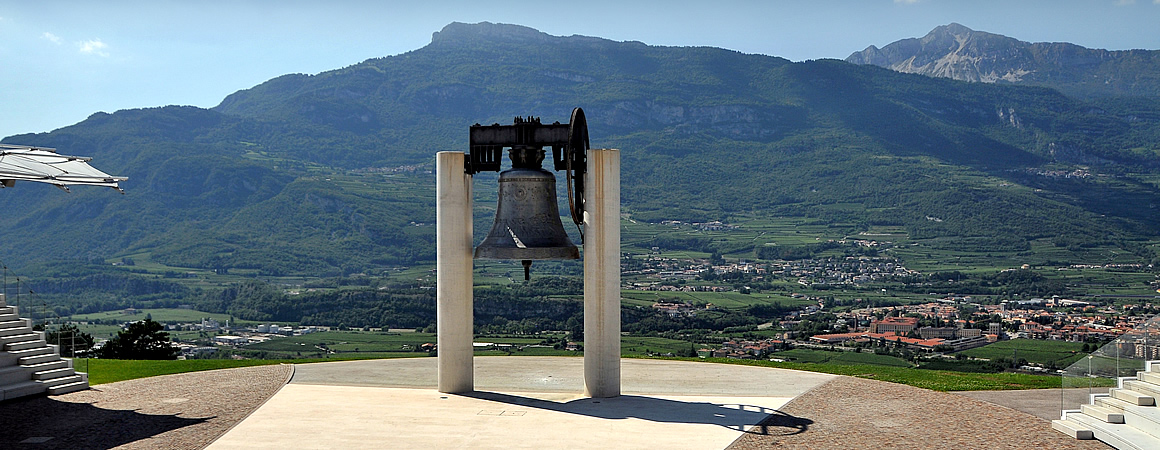Eusebio Jori was born in Revò in the Non Valley on 24 August 1918, and at 12 he entered the Capuchin monastery in Trento, where he completed his high school diploma and studied theology. He was ordained on 29 June 1942 and the following year assigned as a chaplain to the 4th Legion of the Trento Financial Police. An exuberant and dynamic character, at the end of the war he did everything in his power to help the interns in the Bolzano prison camp and the returning prisoners from the German camps.
In the early fifties he was involved in various initiatives prior to and during his work as Dean of the Bell of the Fallen in Rovereto. First and foremost was the annual event held on Christmas Eve at the Brenner Pass, when Italian, Austrian, French, British and American soldiers came together for Holy Mass and a dinner in brotherly friendship. The first of these encounters happened in 1953, a historical period in which Austria had not yet obtained the State Treaty and was occupied by Allied forces, while in the Alto Adige the first bombs of the South Tyrolese secessionist movement were yet to explode. For his work to promote peaceful relations in a somewhat "hot" area, Father Jori was given honorary citizenship of Innsbruck and awarded the Cross of Merit by the Austrian Republic.
In 1953 he took charge of the restoration of the Basilica of S. Lorenzo in Trento, a jewel of Romanesque art which had been abandoned to total decline for two centuries. Father Jori managed to obtain funding and oversaw every stage of the restoration, which took two years. On its completion he decided the church should be used as a secular temple and dedicated to the victims of all wars.
Also extremely significant was the establishment of the Centro Alcide Degasperi on the slopes of Mount Bondone in 1958; this was initially an international summer camp for young people from different European countries, later a prevention unit for sick local children, and finally an education centre for children of Italian emigrants.
The "house in the clouds",
as it was dubbed, was an expression of Father Jori's deep love for marginalised children, while at the same time an embodiment of his ideal of a united Europe, starting with its children.
On 18 May 1953, Father Lori was appointed Regent of the Bell of the Fallen in Rovereto, a position he occupied for 26 years until his death. He had a clear understanding of the spirit which inspired the project, in other words the determination to commemorate the dead of all wars, over and above any barriers of race or nationality. The Bell was a message of peace and brotherhood between peoples, launched by the inspiration of its founder, Don Antonio Rossaro. Father Jori followed this line, giving the Bell greater international scope and dynamism. The Bell was recast for the second time in 1964 and on its return to Rovereto after its blessing by Pope Paul VI in St Peter's Square, it was placed on Miravalle Hill, which became a crossroads for international encounters between politicians and people seeking the route to peace and dialogue between religions. . However, the Bell's new placement was not free of bitter controversy which divided local opinion. But Father Lori remained true to his convictions. His intention was to place the Bell in the centre of the Piazzale delle Genti, a wide-open space suitable for accommodating the numerous representatives of people who - from that moment on - would increasingly gather at the foot of the Bell to testify their commitment to peace.
In the midst of the ongoing controversy, Father Jori's industrious life ended suddenly in Rome on 12 August 1979.






